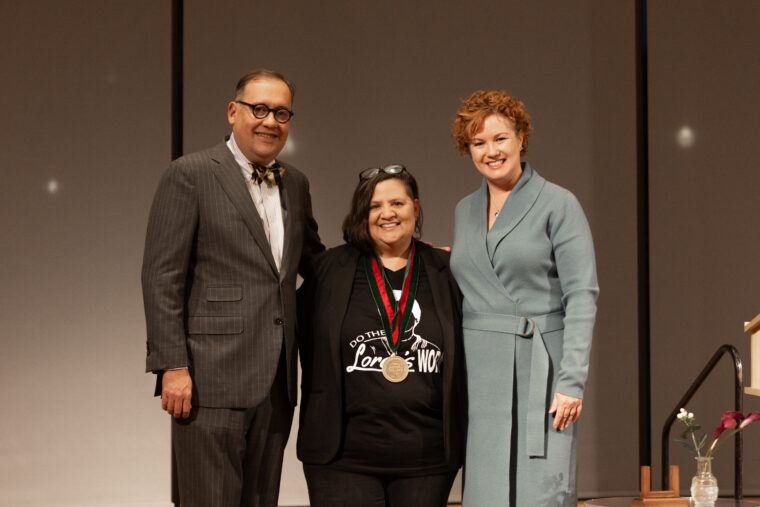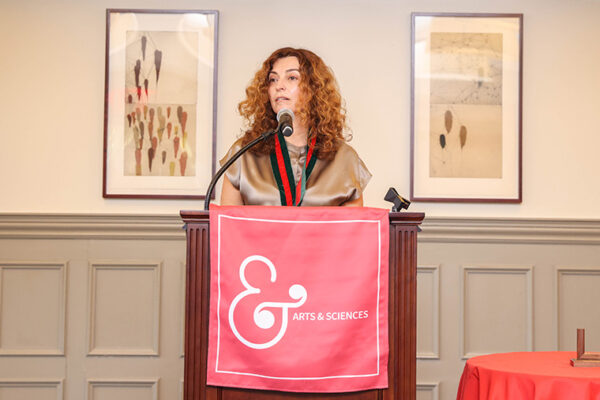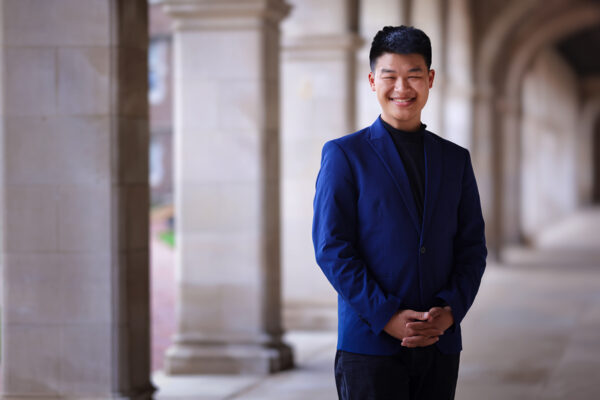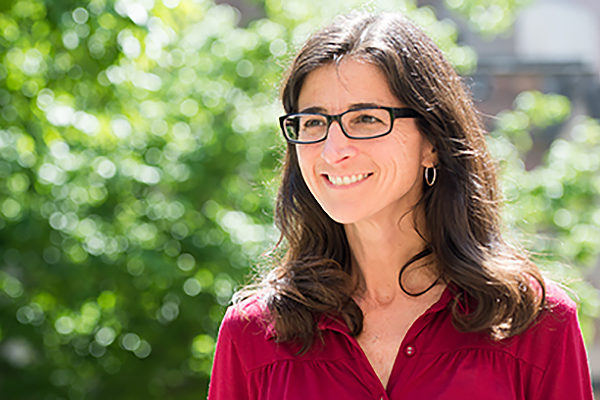Paz Galupo, whose research focuses on the intersection of sexual orientation and gender identity, was installed as the Audre Lorde Distinguished Professor in Sexual Health & Education during a Nov. 6 ceremony at Washington University in St. Louis.
Galupo, who uses both they and she pronouns, joined the university’s Brown School this academic year from Towson University, where they were a professor of psychology.
The newly endowed professorship was established in honor of Lorde, a self-described “Black, lesbian, mother, warrior, poet” who dedicated her life and creative talent to confronting and addressing injustices of racism, sexism, classism and homophobia.
A formal installation ceremony and reception were held in Hillman Hall’s Clark-Fox Forum.
“Paz Galupo’s groundbreaking research on the most marginalized groups in the LGBTQ+ community has led to a greater understanding of those communities,” said Dorian Traube, the Neidorff Family and Centene Corporation Dean of the Brown School. “I welcome Professor Galupo to the Brown School and am excited about this professorship named in honor of such an influential writer and activist.”
“It is fitting that Paz Galupo is the inaugural recipient of a professorship named in honor of Audre Lorde, who was a major contributor to ideas around sexuality and race,” Chancellor Andrew D. Martin said. “I am confident that Professor Galupo will continue Audre’s work to further our understanding of marginalized communities.”
Galupo’s longstanding research program, The Queer/Trans Collective for Research on Equity & Wellness (QT-CREW), centers on those most marginalized in the LGBTQ+ community. QT-CREW conducts community-based research to ensure that the lived experiences of queer, transgender and QT-BIPOC (Black, Indigenous and people of color) are reflected in the scientific literature and to create knowledge designed to improve their lives and well-being.
Galupo’s work utilizes the larger theoretical frameworks of minority stress and intersectionality to consider minority experience and also to understand how larger systems of racism, sexism, cissexism, heterosexism and binary ways of thinking systematically exclude and invalidate individuals at the margins and subsequently how that impacts social experience and creates health disparities.
Galupo’s installation address was titled “Your Existence is Resistance: Resilience, Joy and the Weaponization of Queer & Trans Identities.”
Galupo is editor of the Journal of Bisexuality and associate editor of the International Journal of Transgender Health, the official journal of the World Professional Association for Transgender Health.
A fellow of the American Psychological Association (APA), Galupo is editor of its journal Psychology of Sexual Orientation and Gender Diversity. Galupo serves on the APA task force updating guidelines for psychological practice with transgender and nonbinary persons.
About Audre Lorde

Lorde was born in New York, N.Y., to West Indian immigrant parents. Lorde’s contributions to feminist theory, critical race studies and queer theory intertwined her personal experiences with broader political aims.
Lorde articulated early on the intersections of race, class and gender in canonical essays such as “The Master’s Tools Will Not Dismantle the Master’s House.”
Her early collections of poetry include “The First Cities” (1968), “Cables to Rage” (1970) and “From a Land Where Other People Live” (1972), which was nominated for a National Book Award. Later works, including “New York Head Shop and Museum” (1974), “Coal” (1976) and “The Black Unicorn” (1978), included powerful poems of protest.
Lorde’s honors and awards included a fellowship from the National Endowment for the Arts. A professor of English at John Jay College and Hunter College, she was poet laureate of New York from 1991-92. She died in 1992 at age 58.



